S&P Global Offerings
Featured Topics
Featured Products
Events
S&P Global Offerings
Featured Topics
Featured Products
Events
Emerging markets are strategically positioned to drive global economic growth through the expansion of their domestic markets and to benefit from the reconfiguration of supply chains, trade and investment.
In this latest Look Forward report, Emerging Markets: A Decisive Decade, our authors explore the factors and trends that will shape these vibrant economies. Our inaugural edition focused on emerging markets presents deep data and analysis that highlight how supportive demographics, abundant natural resources, evolving trade dynamics, and technological innovations in energy and manufacturing could propel the development of these markets. However, a global landscape characterized by geopolitical disruption, climate change, and limits to frictionless trade and globalization presents complex challenges.
This research provides essential intelligence for decision-makers looking beyond the near term. With a view to the longer horizon, we provide a framework to explore the diverse characteristics across emerging markets while also assessing the critical factors — market structure, institutional quality and infrastructure efficiency — that will impact their ability to navigate these complex challenges and harness their economic potential. We examine which emerging markets are set to climb the income ladder and how productivity growth will be essential to unlocking faster development.
Demographic changes and stresses from climate impacts will place upward pressure on government debt. Even so, improved external positions, higher reserve buffers and increased monetary effectiveness have made emerging markets less vulnerable to financial shocks. Population growth, urbanization and economic expansion will increase demand for electricity. Upskilling the labor force, improving infrastructure and competing with advanced economies in new technologies such as robotics and AI will determine emerging markets’ longer-term competitiveness. Among the many critical questions that must be considered are how these countries will approach the multidimensional transition, including their efforts to decarbonize their markets, their vulnerability to climate risk and their financing needs for climate change action and mitigation.
We hope these articles initiate a constructive dialogue about the future of emerging economies, and we look forward to discussing these topics further and hearing your own insights.
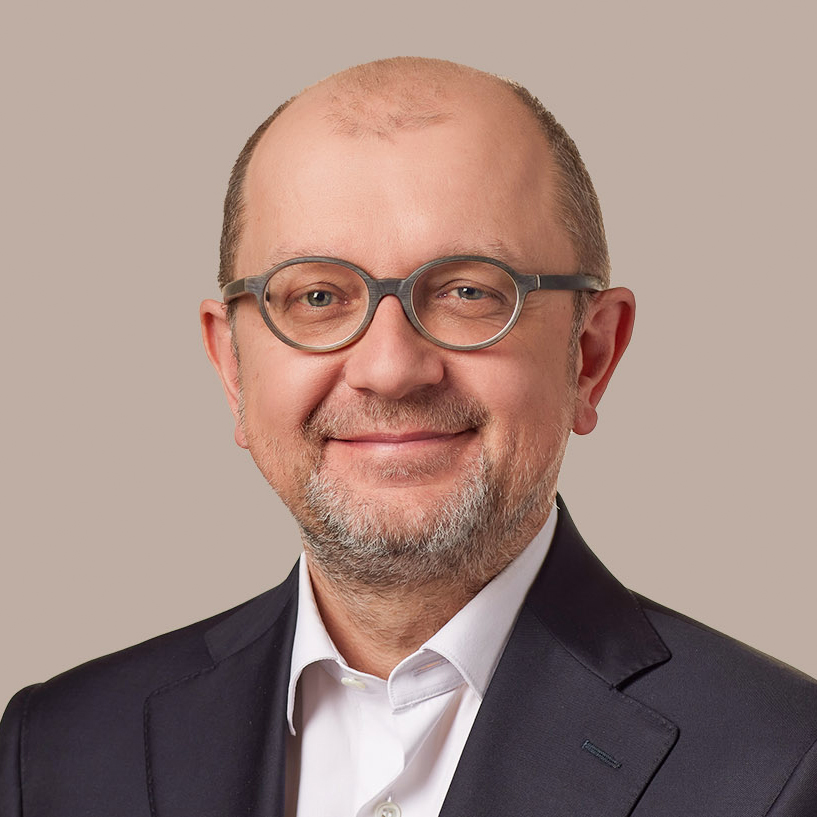
S&P Global Ratings
President, S&P Global Ratings
Yann Le Pallec is President of S&P Global Ratings and a member of the Company’s Executive Leadership Team. He has ultimate responsibility for all aspects of the business, including commercial, analytical, control and operations functions. He is based in Paris and heads the S&P Global Ratings Operating Committee.
Mr. Le Pallec chairs the Board of CRISIL Ltd, a global provider of benchmarks and analytics for the financial community that also owns CRISIL Ratings, a leading credit rating agency in India. CRISIL Ltd is listed on BSE (formerly Bombay Stock Exchange).
Previously, Mr. Le Pallec was the Executive Managing Director and Head of Global Ratings Services which oversees Analytics, Research, and Operations, encompassing more than 2,200 analysts and support staff across 28 countries who cover more than one million outstanding ratings on entities and securities across a range of sectors, including governments, corporations, financial institutions and structured finance.
Since joining S&P Global Ratings in 1999, Mr. Le Pallec has held a diverse array of roles, including Head of Global Corporate Ratings, leading a group of 500 analysts responsible for coverage of more than 4,000 non-financial corporations worldwide. Before that he led S&P Global’s credit ratings business in EMEA, managing a team of more than 900 ratings analysts and support staff across a dozen offices. Previously, he was Head of EMEA Corporate and Government Ratings, after serving in various managerial and analytical positions in the Insurance and Sovereign & Public Sector groups.
Mr. Le Pallec is the S&P Global Executive Sponsor for the Company's PRIDE People Resource Group, which is dedicated to maintaining a supportive work environment for LGBTQ+ colleagues.
Prior to joining S&P Global, Mr. Le Pallec worked for nine years at Paris-based auditing and financial services firm Salustro Reydel.
Mr. Le Pallec holds a master's degree in Business from the Ecole Supérieure des Sciences Economique et Commerciales (ESSEC) in France.
The Emerging Markets Research Lab, launched in February 2024, brings together experts from all divisions and functions of S&P Global to uncover the unique insights and trends shaping emerging markets today and in the future. The Lab seeks to foster collaboration and debate on the strategic opportunities and risks for emerging markets, aiming to generate high-value thought leadership across S&P Global. Throughout 2024, our focus has been on the following key areas:

S&P Global Ratings
President, S&P Global Ratings
Yann Le Pallec is President of S&P Global Ratings and a member of the Company’s Executive Leadership Team. He has ultimate responsibility for all aspects of the business, including commercial, analytical, control and operations functions. He is based in Paris and heads the S&P Global Ratings Operating Committee.
Mr. Le Pallec chairs the Board of CRISIL Ltd, a global provider of benchmarks and analytics for the financial community that also owns CRISIL Ratings, a leading credit rating agency in India. CRISIL Ltd is listed on BSE (formerly Bombay Stock Exchange).
Previously, Mr. Le Pallec was the Executive Managing Director and Head of Global Ratings Services which oversees Analytics, Research, and Operations, encompassing more than 2,200 analysts and support staff across 28 countries who cover more than one million outstanding ratings on entities and securities across a range of sectors, including governments, corporations, financial institutions and structured finance.
Since joining S&P Global Ratings in 1999, Mr. Le Pallec has held a diverse array of roles, including Head of Global Corporate Ratings, leading a group of 500 analysts responsible for coverage of more than 4,000 non-financial corporations worldwide. Before that he led S&P Global’s credit ratings business in EMEA, managing a team of more than 900 ratings analysts and support staff across a dozen offices. Previously, he was Head of EMEA Corporate and Government Ratings, after serving in various managerial and analytical positions in the Insurance and Sovereign & Public Sector groups.
Mr. Le Pallec is the S&P Global Executive Sponsor for the Company's PRIDE People Resource Group, which is dedicated to maintaining a supportive work environment for LGBTQ+ colleagues.
Prior to joining S&P Global, Mr. Le Pallec worked for nine years at Paris-based auditing and financial services firm Salustro Reydel.
Mr. Le Pallec holds a master's degree in Business from the Ecole Supérieure des Sciences Economique et Commerciales (ESSEC) in France.
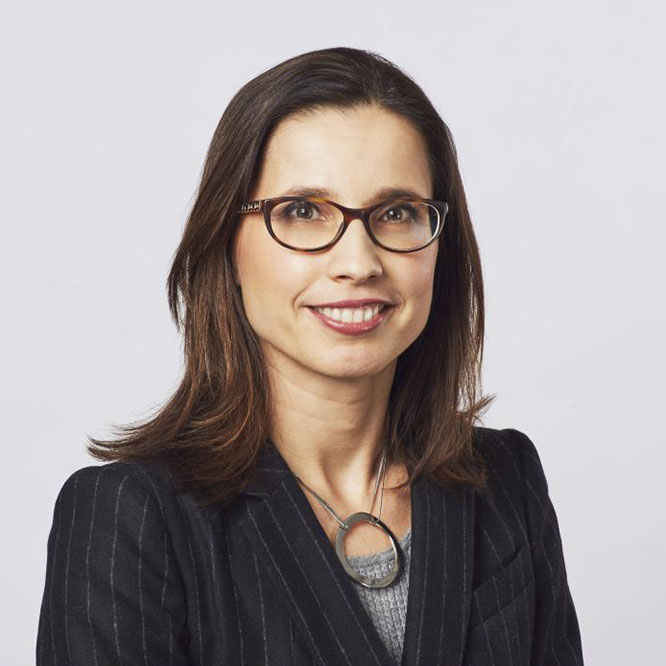
S&P Global Ratings
Global Head of Research and Development

S&P Global Market Intelligence
Head of Insights & Analysis
Her areas of specialization include geopolitical risks and influence mapping affecting emerging market debt vulnerabilities, energy transition pathways and global supply chain re-alignment. Before leading the research group, Natznet led the Africa team for over a decade, developing the integrated analytic capabilities as well as regional risk indicator and horizon scanning infrastructure, drawing on a range of methodologies such as geospatial analysis and scenario modeling techniques

S&P Global Ratings
S&P Global Ratings
Managing Director, Head of Credit Research, Emerging Markets
Jose Perez-Gorozpe is the Head Credit Research for Emerging Markets and chairs the credit conditions committee for Emerging Markets. Credit Conditions Committees meet quarterly to review macroeconomic conditions in each of four regions (Asia-Pacific, Emerging Markets, North America, and Europe, the Middle East, and Africa). Discussions center on identifying credit risks and their potential ratings impact in various sectors, as well as borrowing and lending trends for businesses and consumers.
Jose also chairs the Emerging Markets Risk and Research Hub. This Hub coordinates our economists, research analysts and senior practice representatives to determine our house view on key macro and credit trends.
Jose spent ten years as part of the Financial Institutions analytical team in Mexico’s City office. He was responsible for the analysis of several financial systems in Latin American countries including Brazil, Chile Colombia, Peru and Mexico. He also performed credit rating analysis for several insurance companies and the largest banks in the region. Previously, he was responsible for the analysis of various local and regional governments, other public entities and water utilities for the International Public Finance Ratings team.
Jose joined S&P Global Ratings in November 2003 and holds a BA in Economics from Instituto Tecnológico Autónomo de México (ITAM) and a Master’s Degree in Banks and Financial Markets from Universidad Anahuac.

S&P Global Market Intelligence
Executive Director, Head of Latin American Insights and Analysis
Carlos, Director of Latin America Country Risk Analysis and Forecasting, is responsible for the generation of commercially relevant political and violent risks forecasts for a variety of sectors in Latin America, including energy, manufacturing, mining and insurance. He manages a team of Latin American experts, as well as a remote network of contributors based in the region, covering risks such as expropriation, non-payment, contract frustration, civil unrest, business disruption and security-related risks (extortion, kidnapping, crime and terrorism). Carlos has also worked and delivered numerous consulting projects for a variety of clients interested in understanding the role of stakeholders and risks at the project level in Latin America. His areas of expertise include petroleum policy and economics, public governance in natural resource rich countries, international relations, criminal dynamics in Latin America and political economy.
He holds a BA in International Studies from Universidad Central de Venezuela (Magna Cum-Laude), an MA in International Political Economy from Birmingham University (distinction) and an LLM in Petroleum Law and Policy (distinction) from Dundee University.
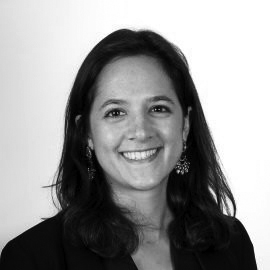
S&P Global Ratings
S&P Global Ratings
Head of Climate Economics & European Economist
Marion Amiot is Head of Climate Economics & European Economist at S&P Global Ratings, based in London. In this position, she develops the Eurozone economic forecasts, provides insight into the economic outlook and conducts in-depth research on key macroeconomic developments and policies.

S&P Global Ratings
Senior Analyst

S&P Global Commodity Insights
Lead Advisor and Regional Head for Africa and Levant, CI Consulting & CERAWeek
Mr. Berkove is an advisor to senior levels of business and government, serving in this capacity for over two decades. He has extensive experience spearheading major consulting initiatives across Africa, the Middle East, and emerging markets that address complex, high-value, and multi-stakeholder issues. These include projects focused on strategy development, competitiveness and innovation, corporate transformation, integrated resource planning, and the nexus of energy sector and economic development.
Mr. Berkove is also a member of the CERAWeek leadership team, supporting VIPs from governments and national oil companies, as well as coordinating CERAWeek's Africa-and East Mediterranean-focused content and community. In addition, he has served in executive and board positions for organizations across a range of sectors including chemicals recycling, commodity trading, IPP development, fintech, mobility technology, and poverty reduction.
During his career, Mr. Berkove has been variously based in Israel, France, Kazakhstan, Ukraine, the United Kingdom, and the United States. Fluent in Russian and Hebrew, he holds a Bachelor of Arts from the University of Michigan, United States.
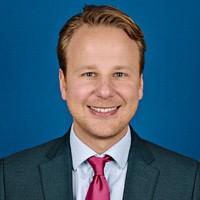
S&P Global Ratings
Global Head Multilateral Lending Institutions
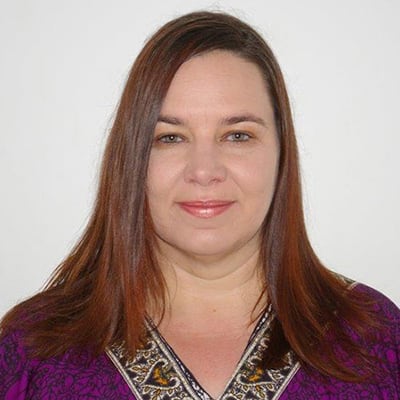
S&P Global Market Intelligence
Head of Sub-Saharan Africa Insights and Analysis
Thea leads Sub-Saharan Economics and Country Risk analysis for S&P Global Market Intelligence. Her 30-year career has been devoted to macro-econometric modeling and macro-economic analysis of the Sub-Saharan region, with a focus on markets including South Africa, Nigeria, Zambia, Mozambique, Namibia, Niger, Central African Republic and Benin. South Africa and Nigeria are part of our proprietary Global Link Model - an econometric model covering 95% of global GDP - where she takes responsibility for these two countries.
Thea leads a team of 12 regional experts responsible for forecasting macroeconomic, country and sovereign risk outlooks across the region. She covers major developments on the African continent through strategic research and analysis, supporting clients globally on horizon scanning, portfolio management, market entry and risk mitigation. Prior to joining S&P Global, Thea was a financial economist and econometrician at ING Barings, BOE NatWest Securities, and ABSA Bank, specializing in macro and financial economic analysis of the South African economy.
Thea is based in Pretoria, and fluent in both Afrikaans and English.

S&P Global Commodity Insights
Senior Director, Global Power and Renewables
Etienne has taken part in projects across Latin America, North America and Europe, focusing on power price projections, power generation and transmission outlooks, asset valuations, and the analysis of operational and investment strategies for utilities, project developers, financial institutions, and other market participants. Past projects include assisting a global power utility in developing renewable energy projects in emerging markets, evaluating strategies for corporate clean energy procurement, and conducting due diligence on large portfolios of thermal and renewable assets.
Etienne holds a Bachelor of Science from Northwestern University, United States, and a Master of Science from Stanford University, United States. He is fluent in English, French, and Spanish.
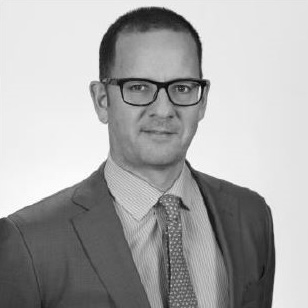
S&P Global Ratings
Managing Director
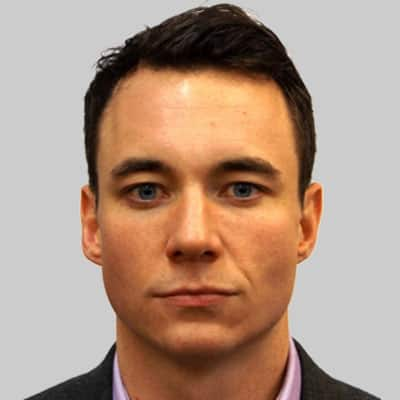
S&P Global Market Intelligence
Associate Director and Head of Desk, Country Risk – Middle East and North Africa
Jack specializes in political risk and violent trends across the MENA region, with a particular focus on Egypt, the Gulf states, and the eastern Mediterranean. Prior to S&P Global, Jack was lead Middle East analyst for a business and political risk consultancy firm in Scotland.
Jack holds an MLitt in Middle East and Central Asia Security Studies from the University of St Andrews and an MA in Arabic and Social Anthropology from the University of Edinburgh.

S&P Global Market Intelligence
Head of Asia-Pacific Country Risk and Co-Lead, India Research Chapter
Deepa leads analysis on India and routinely spearheads and contributes to corporate-wide initiatives focused on India. Deepa has a background in Indian parliamentary research and was previously an entrepreneur whose organization in New Delhi focused on increasing citizen engagement with political representatives.
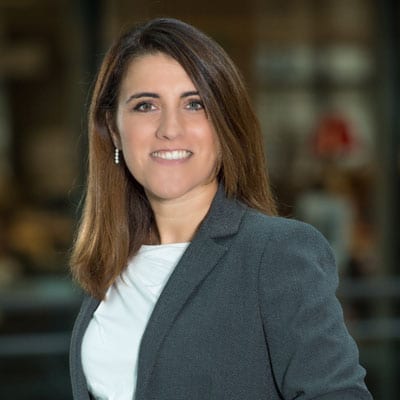
S&P Global Commodity Insights
Director
Silvia has led the regional renewables research for over 12 years, covering renewable power policy trends, business models, emerging renewable strategies, project activity and competitive landscape, among others. Her research scope includes all renewable power technologies' options.
Silvia leads the team covering power research and analysis in Africa and Middle East, including power market fundamentals and long-term outlook, strategy and policy, and competitive analysis. She has international experience in analysis and communication, having been based in the Middle East for over five years before her role at IHS Markit. Silvia was an energy researcher and journalist for the Middle East Economic Survey (MEES), based in Lebanon, and previously a development advisor at UNDP in Cairo, Egypt.
Silvia holds a BA in International Relations from Bologna University (Italy) and a Master's degree in Arab Gulf Studies from the University of Exeter (UK). She is Frankfurt School's Certified Expert in Climate and Renewable Energy Finance (2018). Silvia is based in Paris and speaks Italian, English, Spanish, and French, and has a basic knowledge of Arabic.

S&P Global Market Intelligence
S&P Global Market Intelligence
Senior Supply Chain Analyst
Eric focuses on developing data driven research on international trade, logistics, and supply chains. He has multi-industry experience in global procurement ranging from paperboard boxes to enterprise software, and holds an MS in Business Analytics from Babson College and a BS in Supply Chain and Operations Management from Miami University.

S&P Global Ratings
S&P Global Ratings
Chief Economist - Emerging Markets
Elijah Oliveros-Rosen is the Lead Economist for Latin America at S&P Global Ratings. He forecasts the main macroeconomic variables for major countries in the region, which are used by S&P Global analysts during the ratings process. He also publishes work on the outlook for emerging economies, as well as on other topics pertaining to the region.
Before joining S&P Global, Elijah was a Latin America Country Risk Analyst at BMI Research, where he conducted macroeconomic forecasts and published commentary on breaking developments. He also held the role of lead Latin America financial markets strategist at BMI Research, in which he identified investment opportunities across FX, Fixed Income, and Equities.

S&P Global Market Intelligence
Principal Analyst, Models and Scenarios Team
Cassandra is a senior consultant and cyber risk expert for the Economics and Country Risk Team at S&P Global Market Intelligence. Prior to working at S&P Global Market Intelligence, she served as the data technical expert for the Woodrow Wilson Center for International Scholars and consultant to the ITU's Global Cybersecurity Index. She also served the consulting data scientist for EDGE Strategy and organizational learning consultant for the Center for International Private Enterprise. She additionally served as research lead for Digital Inclusion at the Institute for Business in the Global Context developing data toolkits in collaboration with MasterCard and Microsoft. In addition to her experience in research, she has worked in women's leadership and at School of Leadership-Afghanistan in Kabul preparing teachers in STEM subjects. She holds a Master of Arts in Law and Diplomacy from the Fletcher School at Tufts and a degree in International Political Economy from the Colorado College.

S&P Global Market Intelligence
S&P Global Market Intelligence
Head of Supply Chain Research
Chris Rogers is Head of Supply Chain Research at S&P Global Market Intelligence. He has over 25 years of research experience, including more than a decade covering global supply chains. He has worked at firms including Panjiva (acquired by S&P Global in 2018), Bloomberg, JP Morgan, and most recently freight forwarder Flexport. His coverage includes corporate decision-making, international trade policy, and logistics network operations.
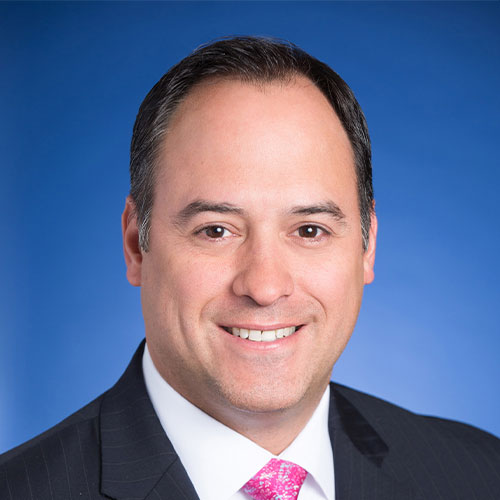
S&P Global Ratings
S&P Global Ratings
Global Head of Sovereign & MLI Ratings
Lead Editors
Beth Donovan, Senior Editor
Michael Lustig, Senior Lead Editor
Project Manager
Meha Dave, Associate, Project Execution Lead, New Product & Analytical Innovation
Production Manager
Carla Donaghey, Senior Designer
Copy Editor
Mary Brown, Editor
Head of Editorial, Design & Publishing Team
Ken Fredman
Content Strategy
Nathan Hunt, Head of Content and Digital Marketing
Kyle May, Enterprise Content Marketing Lead
Communications
May Kek, Communications Director, APAC, Corporate Communications
Christopher Krantz, Global Head of Communications, Ratings and S1 Corporate Communications
Graphics Editor
Matthew Schick, Senior Editor, Visuals
Website Development
Kurt Burger, Marketing Specialist
Social Outreach
Camille McManus, Marketing Specialist
Designer
Lance Meneley, Senior Designer
Glossary
We have selected a list of key terms used throughout this Look Forward Journal. We offer these definitions to provide readers with a clear understanding about the scope of each concept, which can vary across different research outlets.
Emerging markets: For the purpose of the articles of this Look Forward Journal, S&P Global defines “emerging markets” as countries that have been or are transitioning toward middle-income levels, with good access to global capital markets (including sovereign and domestic corporations and financial institutions), deepening domestic capital markets, and global economic relevance based on economic size, population and share in global trade. In our article series, we focus on Argentina, Brazil, Chile, China, Colombia, Hungary, India, Indonesia, Malaysia, Mexico, Peru, the Philippines, Poland, Saudi Arabia, South Africa, Thailand, Türkiye and Vietnam. Some articles include additional countries within the scope of our definition to emphasize our arguments or to present the reader with additional examples that support our insights.
Frontier markets: S&P Global defines “frontier markets” as countries with per capita income below $2,500 GDP. These countries face economic challenges and financing needs. They rely on international institutions, including the International Monetary Fund’s Poverty Reduction and Growth Trust, for vital policy and financial support. They have shallow and narrow domestic capital markets that are often underdeveloped. These economies are also characterized by political instability, inadequate regulation, substandard financial reporting, weak liquidity and large currency fluctuations. Their economies are often concentrated in very few sectors or commodities.
In our article Multilateral lending institutions and private sector capital mobilization for climate action and development, we use additional definitions to classify countries. This is because multilateral institutions use country income classifications in their underwriting criteria. The income classification definitions below are fully aligned with World Bank guidance, which is updated regularly. Countries classified within the lower-income, lower-middle-income and upper-middle-income categories can also be classified within our frontier or emerging markets thresholds.
Low-income countries: Countries with gross national income (GNI) per capita equal to or below $1,135.
Lower-middle-income countries: Countries with GNI per capita between $1,136 and $4,465.
Upper-middle-income countries: Countries with GNI per capita between $4,466 and $13,845.
High-income countries: Countries with GNI per capita above $13,845.
For more details and updates on these definitions, please refer to the World Bank Group country classifications by income level.
SSP3-7.0: A moderate- to high-emissions scenario, akin to a slow transition, in which countries increasingly focus on domestic or regional issues, with slower economic development and lower population growth. A low international priority for addressing environmental concerns leads to rapid environmental degradation in some regions. This SSP projects a global temperature increase of 2.1 degrees C (1.7 degrees C-2.6 degrees C) by 2050 or 3.6 degrees C (2.8 degrees C-4.6 degrees C) by the end of the century.
Energy transition financing gap: In our articles, we discuss a financing gap that refers to the resources needed to achieve each country’s energy transition objectives. Such objectives could be defined by domestic state policy guidelines or fully aligned with the UN’s sustainable development goals. In most cases, the amounts needed to achieve sustainable goals are significant and difficult to finance, leading to a financing gap.
EU Corporate Sustainability Due Diligence Directive (CS3D): This directive was approved by the Council of the European Union on May 24, 2024. It stipulates that EU-based companies and non-EU companies operating in the European single market with more than 1,000 employees and global revenue exceeding €450 million are legally bound to ensure that their supply chains neither harm the environment nor violate human and labor rights. Implementation will occur in stages between 2027 and 2029, based on company size.
Strategic Opportunity Index™ (SOI™): The Strategic Opportunity Index™ measures the state of a market and its potential to generate opportunity for enterprise, encompassing a range of factors. The SOI™ draws on market-level data for over 90 markets, covering more than 98% of global GDP. The aggregate scores and ranks of each market and the state of the macro environment have been constructed on an annual frequency since 2014. The data provides users with current and historical telemetry on the economic, regulatory, policy, institutional, logistics, supply chain, trade and resource questions through normalized data.
The SOI™ Momentum Score measures how the markets have changed over the past 10 years from the perspective of the index. Momentum scores are calculated from compound annual growth rates and normalized to provide a comparable score that focuses on the trajectory of the country, regardless of the current SOI™ ranking. Markets with the most improvement rank highest on momentum scores. This approach helps users understand and identify markets where opportunities are expanding.
The SOI™ Policy Favorability Score measures the extent to which government policies, regulations and tax code support and encourage new enterprise.
The SOI™ Institutional Quality Score measures the strength and effectiveness of a country’s institutions, such as legal and financial institutions.
The SOI™ Logistics Efficiency Score measures the effectiveness and reliability of a country’s logistics and supply chain infrastructure.
The SOI™ Market Potential Score measures the extent to which the domestic market is open, innovative and attractive for new business opportunities.
The SOI™ Resource Availability Score measures the accessibility and adequacy of the necessary resources for conducting business operations in a given market, specifically labor and capital.